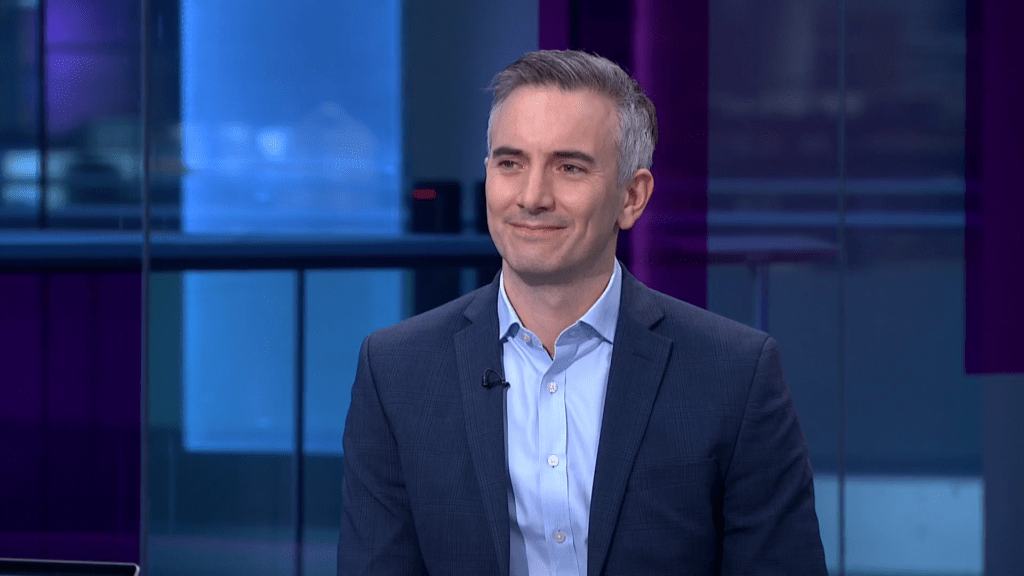According to renowned polling expert Professor Sir John Curtice, Reform UK’s election surge is proving to be a legitimate and potentially lasting shift in British politics.
Prof. Curtice emphasized that the party’s rising popularity is not an anomaly but a reflection of deeper political dissatisfaction.
He pointed out that while the Conservative Party remains embroiled in internal struggles, the most striking development has been the historic collapse in Labour’s support merely seven months after assuming power.
This unexpected downturn has led to mounting scrutiny over Chancellor Rachel Reeves, with many attributing Labour’s unpopularity to economic struggles.
Prof. Curtice’s analysis aligns with findings from other leading pollsters, including Lord Robert Hayward and Luke Tryl of More in Common, who have observed a clear shift in voter sentiment.
In an extraordinary week for British politics, multiple polls placed Nigel Farage’s Reform UK at the top, either tying or surpassing Labour. Techne UK’s weekly tracker showed the Reform and Labour level at 25 percent, with the Tories trailing at 23 percent.
Another poll by FindOutNow positioned Reform at 29 percent, significantly ahead of the Conservatives at 18 percent and four points clear of Labour.
Prof. Curtice dismissed speculation that Reform’s vote share was artificially inflated, asserting, “There is no reason to believe Reform’s vote is being significantly overstated.” He referenced recent council by-election results, where Reform secured three of six contested seats — two from Labour and one from the Conservatives — as evidence of the party’s growing influence.
According to Prof. Curtice, the rapid decline in Labour’s vote share is unprecedented, even when compared to historic third-party surges, such as the Social Democratic Party (SDP) in 1981 and the Liberal Democrats in 2010.
He cautioned that Reform UK’s long-term success will depend on securing funding, developing a robust party infrastructure, and navigating pressing national issues such as the economy and the NHS.
Polling Experts Issue Warnings Amid Shift
While acknowledging the significant shift in voter sentiment, Lord Hayward urged caution when interpreting polling numbers. He recalled the 2024 general election, where polls were notably inaccurate.
“The last general election had the most inaccurate polls in history. The only reason there was not a fuss about it was because it was so obvious Labour was going to win that it did not make a difference to the result, unlike 2015.”
Lord Hayward
Despite this, Lord Hayward acknowledged that by-election trends confirm Reform UK’s momentum. “The by-elections show that Reform are making headway and we are seeing a lot of by-election results to base our analysis on,” he said.
He also pointed out that Reform’s support is not exclusively drawn from disillusioned Conservatives. Instead, he suggested that the party is attracting a broad “anti-establishment” coalition, including former Liberal Democrat voters and individuals who typically abstain from voting.
He compared this phenomenon to the unexpected outcomes of the 2016 Brexit referendum and Donald Trump’s victory in the same year, both of which confounded pollsters due to underestimated voter turnout.
Luke Tryl of More in Common echoed these observations, noting that Reform UK is benefiting from a shift in public perception of Nigel Farage.
“There’s no doubt Reform have momentum, and we are seeing people who had previously been in the ‘I like Farage but I don’t think he should be PM’ camp now saying, ‘well, we may as well roll the dice given Labour haven’t delivered and the Tories had 14 years.’”
Luke Tryl

However, Tryl highlighted several challenges that Reform UK must overcome to maintain its lead. These include formulating a comprehensive policy platform, recruiting credible candidates, and determining whether 25 percent is a new ceiling or just the beginning of a broader movement.
Another key question is whether the Conservatives and Reform UK could eventually align or whether Reform can continue siphoning votes from the Tories.
“Part of the challenge is that the remaining Tory vote is more Phillip Hammond (centrist) than Lee Anderson (on the right), So there might not be much more of that to get, and the Labour vote is increasingly blue-wall Tory seats.”
Luke Tryl
The shifting political landscape has sparked speculation about the long-term trajectory of British electoral politics. Recent elections in 2015, 2017, 2019, and 2024 have demonstrated the fluidity of voter allegiances, with many traditional Labour supporters transitioning to the Conservatives and now to Reform UK.
READ ALSO: Mahama Redefines Leadership with Focus on Accountability, Humility




















